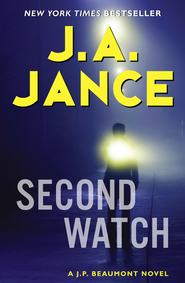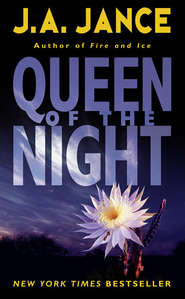По всем вопросам обращайтесь на: info@litportal.ru
(©) 2003-2024.
✖
Betrayal of Trust
Автор
Год написания книги
2019
Настройки чтения
Размер шрифта
Высота строк
Поля
I knew that Ross and Harry had done some drinking together in the old days, but in this instance I played dumb.
“I’m sure you can get anything you want in the coffee shop,” I assured him. “Maybe he missed lunch.”
“Right,” Harry said sarcastically. “Whatever.” He hung up.
If you’ve been in any Red Lion Hotel in the continental United States, you know the drill. There used to be huge wooden carvings on the walls of the lobby and the restaurant. Whenever I saw them, I imagined some crazed woodcarver living off in the woods somewhere, cutting out those gigantic pieces and then warehousing them so there would be a ready supply waiting when it came time to open a new hotel. But things change, and time has taken its toll. Now the Olympia Red Lion lobby is cream and butter-yellow and stone. The crazed carver has probably hung up his chain saw and moved to Palm Springs, where he plays golf every day.
Mel had beaten me to the registration desk. When I walked up to ask for my room key, the desk clerk couldn’t help but give me a knowing leer.
“Ms. Soames has already arrived, Mr. Beaumont,” he said. “Your room charge is already paid, and she left a credit card to cover incidentals. Would you care to leave a card to cover your own?”
I was wearing my wedding ring, and I’m sure Mel was wearing hers. Her credit card charges and mine were all one account, but I didn’t bother explaining that or the last-name situation to the clerk. He was a young guy, somewhere in his late twenties, who seemed astonished by the idea that someone of my advanced age—older than dirt in the clerk’s eyes—could possibly be about to get lucky. I wanted to tell him, “Listen up, turkey. I already am lucky,” but I didn’t. Leaving him to arrive at his own erroneous and dirty-minded conclusions, I took my room key and left.
Mel was upstairs in our room and totally unpacked by the time I got there. I told you she drives fast. Like her speedy showers, the unpacking part came from growing up as a military dependent. Every time her family was shipped to a new base, suitcases were unpacked immediately. With clothing in the drawers and closets, it was easier to feel settled faster. She had appropriated the room’s only decent chair and was working on her laptop.
“You took long enough,” she said.
“Harry called,” I told her. “We’re supposed to meet up with Ross in the coffee shop right about now.”
“I know,” Mel said. “I got a call, too, but there’s still no hint about what this is all about?”
“None,” I said.
“Most likely politics as usual,” she said.
“That would be my guess.”
Even though I would have been happy to leave my crap in my roll-aboard, I allowed myself to be influenced by peer pressure. I unpacked and put my underwear and socks in an unoccupied dresser drawer. I hung up my extra slacks and clean shirts, still covered with the dry cleaner’s plastic wrapping. I’m waiting for the day when someone decides that there has to be an extra charge for putting plastic around your freshly laundered shirts. It hasn’t happened so far, probably only because no one has noticed.
“You should check your e-mail,” Mel said, peering at her computer screen.
“Why? Something new from Barbara Galvin? Or is that nice Nigerian widow wanting to send me money again?”
My kids, Scott and Kelly, had been pretty much out of my life for years. When their mother died of cancer, we started trying to reconnect, an effort that was helped immeasurably by Dave Livingston, Karen’s widowed second husband and my kids’ caring stepfather. Kelly, her husband, Jeff Cartwright, and my two grandkids live in Ashland, Oregon. Scott and his wife, Cherisse, live in the Bay Area. For a long time we communicated back and forth by e-mail. Now my generation-X progeny mostly send me text messages or e-mail. Other than work-related messages, most of the other new mail in my e-mail account turns out to be spam.
Mel grinned at me and shook her head. “I was scanning down the junk mail in your spam folder. There’s something in there with a subject line that says ‘Beaumont, Texas.’”
The room phone rang just then. Mel picked it up. “Okay,” she said after a moment’s pause. “We’ll be right down.”
“Ross?” I asked.
She nodded.
“Just move that message to my new-mail folder,” I told her. “I’ll read it later. Right now we’d better go see what the boss has in mind.”
“And why he’d rather meet with us here instead of having us stop by his office, which, in my opinion, is a hell of a lot nicer than any hotel coffee shop, and a lot more private, too.”
I was glad to know I wasn’t the only one who had been wondering about that.
We found Ross in the coffee shop downstairs. It was still early enough that the room was mostly empty. The attorney general, with a cup and saucer in front of him, was seated in a booth in the far corner of the room under a huge oil painting that depicted a salmon heading upstream to a most likely unhappy end. From the morose look on Ross’s usually cheerful countenance, the painting seemed like an apt reflection of the AG’s current mood.
As a general rule, when I’m in public places I don’t like sitting with my back to the door. Neither does Mel. We both want to be able to see who is coming in and going out, just in case. In this instance, Ross had already appropriated the door-facing seat in the booth. Mel solved the problem by slipping into the booth next to our boss and letting me have the other side of the booth to myself.
“Your room is all right?” he asked.
“The room’s fine,” Mel assured him.
A waitress showed up, order pad at the ready. “They’ll have coffee,” Ross said, without bothering to ask our opinion. “Bring us one of those big pots. When we’re ready to order lunch, I’ll let you know.”
Nodding, the waitress went away. She was back a minute or so later with an insulated carafe of coffee.
“Cream and sugar?” she asked, pouring into the cups in front of us.
“Black,” Mel and I answered together.
“Okay,” she said, and went away, leaving us alone.
The moment she was gone, Ross reached into his pocket. He pulled out an iPhone, tinkered with it for a moment, and then set it in front of Mel. “I need you to watch this video before anyone else comes into the dining room,” he said.
Mel watched. The sound was turned off. There was no way to tell what was happening on the tiny screen, but from watching the subtle shifts in Mel’s features—the tightening of the muscles on her jawbone, the sudden iciness in her eyes, the paleness of her cheeks—I knew whatever it was wasn’t good.
When the video ended, she turned on Ross. “Is this real?” she demanded.
He nodded. “I think so.”
Without another word, Mel punched what must have been the replay button and pushed the phone over to me. There was a girl on the screen. She looked to be fourteen or fifteen, maybe, straight teeth, dark wavy hair, a blue scarf tied around her neck. She smiled for the camera—a nice smile; a shy smile—as though she was a little nervous about being there. Then two disembodied hands appeared on the screen. Each hand grasped one end of the scarf, and they began to pull. For a moment the girl was docile, as though this was something she expected and might even have welcomed. I had heard of the choking game before. I realized this wasn’t a game about the same time the girl did. She began to claw at the scarf and try to loosen its hold on her neck. She surged to her feet, struggling. The camera’s focus moved with her, staying on her face, keeping the bodies and faces that belonged to the hands pulling on the scarf safely out of the camera’s view.
I watched it all the way to the end. When it was over, I knew the girl was dead. I also understood why Ross hadn’t ordered any food. I felt as sick to my stomach as Mel Soames looked.
“Snuff film,” I said, unnecessarily. “Who is she?”
Ross shook his head. “No idea who she is or where she’s from.”
“But there are three people involved in the homicide,” Mel said. “Two guys pulling the scarf and one guy running the camera.”
“Right,” Ross said. “Three.”
“So if you don’t know who she is or where she’s from, how come this is our case?” I asked.
Ross looked uncomfortable as he collected the iPhone and stuffed it back into his pocket.
“Governor Longmire brought it over to my office and dropped it off earlier this morning,” he said. “It’s the governor’s husband’s grandson’s phone. He’s fifteen.”
“Do you think he’s involved?” Mel asked.
Ross shook his head. “No way of knowing. His name is Josh Deeson. The kid could be one of the hands pulling the ends of the scarf or he could be the guy with the camera. It’s also possible that he’s entirely innocent. His mother, the governor’s stepdaughter, is deceased. From what I can tell, she was pretty much of a loser who overdosed on meth two years ago. The father was declared unfit, and the courts awarded custody to the boy’s maternal grandfather, Gerard Willis, who happens to be married to Governor Longmire and who also happens to have undergone quadruple bypass surgery just last week.”
“I remember reading something about the governor’s husband going in for surgery, but I don’t recall anything about his daughter’s death being drug-related.”









